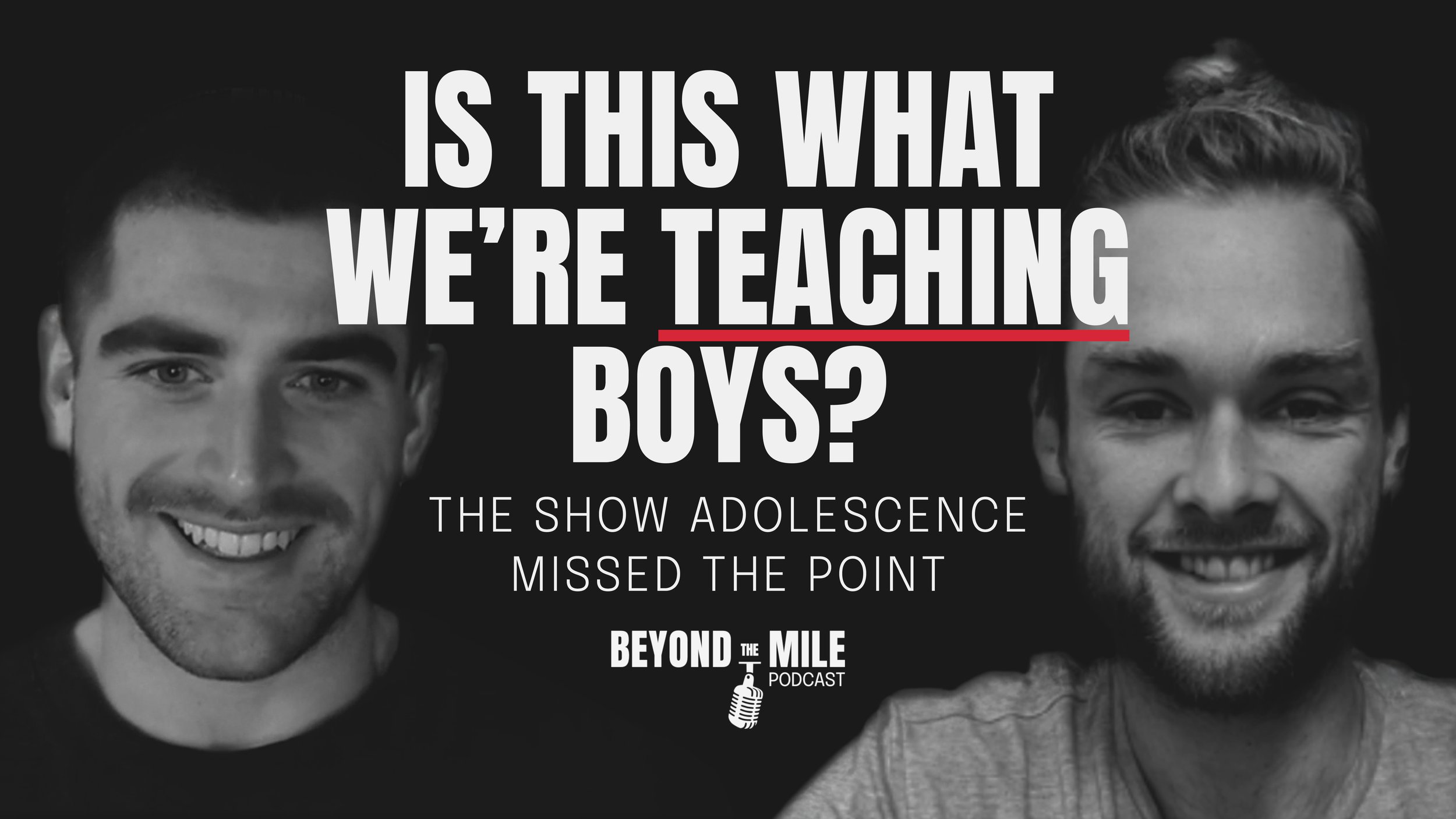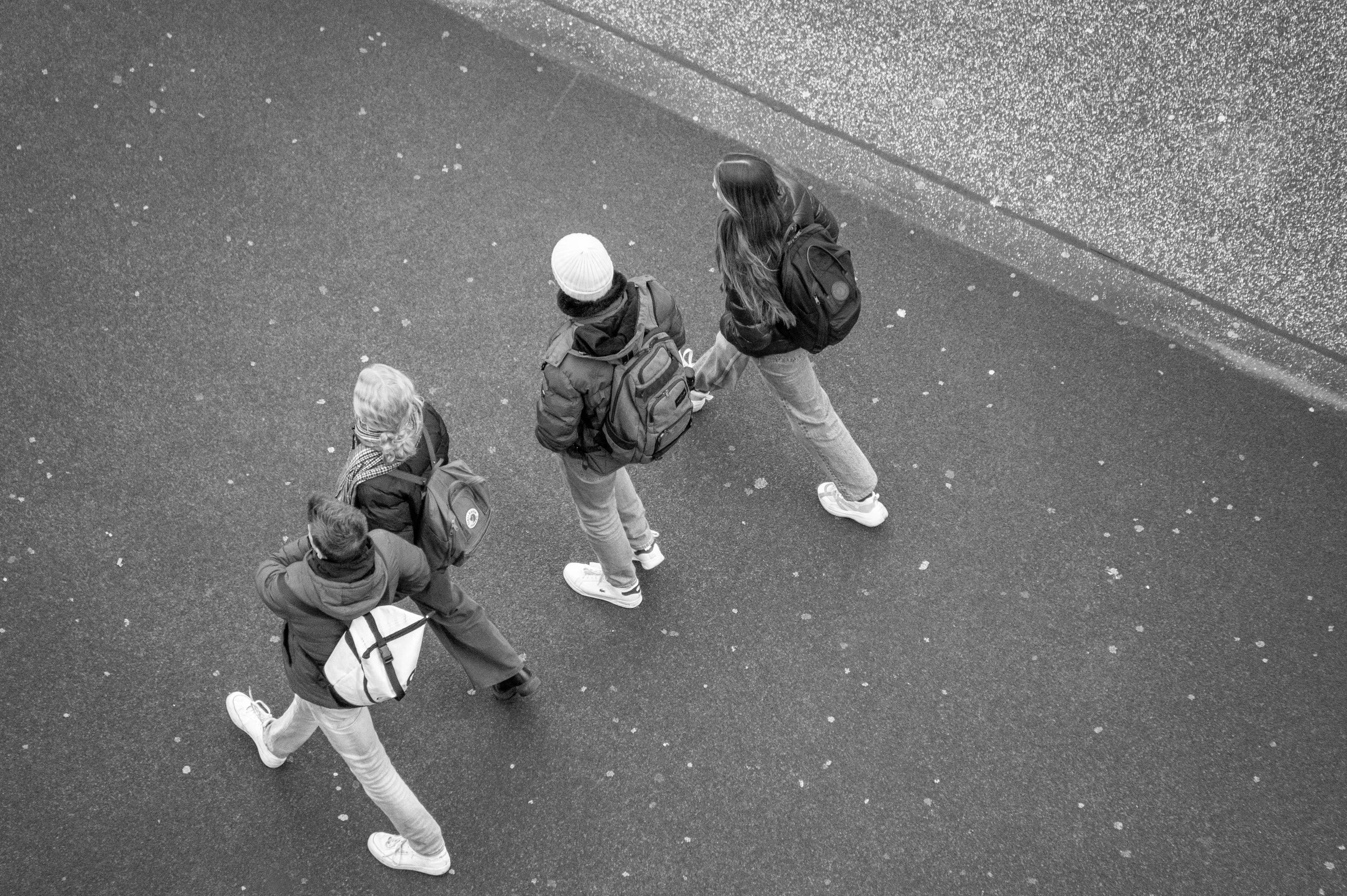Is This What We’re Teaching Boys? The Show Adolescence Missed the Point
It had been seven weeks since James and I last sat down to record — and honestly, it was worth the wait. We went deep on a show that’s been stirring up a lot of discussion lately: Adolescence, the new Netflix drama. It tells the story of a 13-year-old boy who murders a classmate, and while that premise alone is enough to spark debate, what really got to me was the emotional and cultural chaos it triggered — especially around masculinity, incel culture, and how we support (or fail) young men.
As someone who’s still figuring out what masculinity really means — how to show up as a man, how to connect with other men, what our role is in shaping the next generation — this conversation hit me harder than I expected. There were moments in that show that genuinely made me cry. Others made me angry. But mostly, it left me with questions. Big ones.
The Show Itself: Thought-Provoking, but Misguided?
Let’s start with the obvious: Adolescence is incredibly well acted. It’s compelling to watch. Stephen Graham — who also co-wrote the series — is brilliant. And the way each episode plays out in a single, continuous scene is clever and bold.
But emotionally and ethically? That’s where it gets messy.
The series centres around Jamie, a 13-year-old boy who, after being bullied and humiliated by a girl at school, ends up killing her. The writers heavily imply that this is somehow the result of ‘incel behaviour’. And I just kept asking myself — is that really what happened here?
James, with his background as a psychotherapist working closely with men and boys, brought some really valuable perspective. “Why would you use a 13-year-old as an incel?” he asked. “Of course he’s not having sex. He’s 13.”
We both struggled with how the show seemed to simplify a deeply complex issue — mixing teenage bullying, male identity, and radicalisation into a narrative that felt more moralistic than realistic.
Feeling for the Villain: What Does That Say About Us?
Here’s what surprised me most: I felt compassion for Jamie. The boy who killed someone. And I wasn’t sure what to make of that.
But James pointed out something important — we know next to nothing about Katie, the girl he killed. She barely features in the series. We don’t learn much about her, we don’t really connect with her emotionally. What we do know is that she mocked Jamie online and played a part in his humiliation.
“You don’t even know what she looks like,” James said. “You know she bullied him. That’s about it.”
It’s a powerful reminder of how stories shape our empathy. In this show, we’re given Jamie’s side. Not Katie’s. That’s effective storytelling — but it also creates a dangerous imbalance.
The System That Refuses to Look in the Mirror
One of the most insightful parts of our chat was James’ take on systems. The way schools, parents, government and society all play a role in shaping young people.
He said something that’s really stuck with me:
“It’s a symptom of a system that refuses to look in the mirror.”
And he’s right. Overcrowded classrooms. Parents working all hours. Teachers too stretched to spot the signs of isolation or bullying. These aren’t new problems — but the show barely touches them. Instead, it pins the blame on buzzwords like toxic masculinity or online radicalisation.
And that’s not to say those things don’t matter — but they’re not the full picture. If we really want to tackle violence in young boys, we need to look closer to home.
Is This Really What We Should Be Showing in Schools?
Watching Adolescence triggered a proper emotional reaction in me. I cried. I found myself thinking about kids I know, young people close to me, and how easily a situation like Jamie’s could unfold in the real world.
And yet, there are discussions happening about showing this series in classrooms.
James made a really good point: “You’re 26 and it affected you that deeply — what do you think it’s going to do to a 13-year-old?”
We’re talking about teenagers processing some of the darkest aspects of human behaviour, without necessarily having the language or support to make sense of it. Most teachers aren’t trained to handle that emotional intensity — and we risk creating more confusion and fear than understanding.
Masculinity: Have We Lost the Plot?
One of the biggest threads in our conversation was around masculinity itself. What does it mean to be a man today?
We touched on Andrew Tate — not because he’s the cause of all this, but because he’s become a magnet for attention in the vacuum left by the absence of real male role models.
“Masculinity has the potential to be dangerous,” James said. “But if it’s channelled well, it’s protective. It’s healing.”
Right now, we don’t have enough structures to help boys navigate that power. No rites of passage. No community elders. No mentors. Just YouTube clips, podcasts, and whatever narrative happens to catch their attention.
Our culture’s response? Shame masculine energy. Suppress it. Pretend it’s not there.
And what happens when you do that? It finds its way out — often in ways that are immature, exaggerated, or destructive.
Power with Restraint: The Warrior in the Garden
We referenced a quote I’ve heard before, but it landed differently this time:
“It’s better to be a warrior in a garden than a gardener in a war.”
That line captures it for me. Masculinity isn’t about being aggressive, or passive. It’s about having power — and the wisdom to know when (and when not) to use it.
James added another perspective:
“If you can’t say no, then your morality is cowardice.”
Meaning, if you’re only being kind because you’re too afraid to do otherwise, it’s not really kindness — it’s fear. That’s something I’m still sitting with.
So Where Do We Go From Here?
We didn’t come away from this episode with all the answers. But we did land on a few things that feel like good starting points:
Boys need strong role models.
Boys need emotional tools.
Boys need somewhere to direct their energy.
Whether that’s in therapy, through mentors, at home, or in school — we have to stop shaming boys for being boys. Instead, we need to initiate them into manhood in a way that’s meaningful, grounded, and compassionate.
That’s the conversation James and I tried to have in this episode. It’s not a perfect one — but it’s one we need to keep having. Because if we don’t, we leave a lot of boys alone in the dark with nowhere to turn.
And that never ends well.


